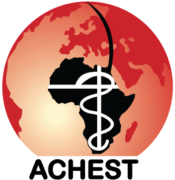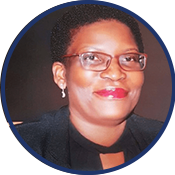Honorable Mention: African Center for Global Health and Social Transformation (ACHEST)
About the Honorable Mention

The African Center for Global Health and Social Transformation (ACHEST) is an indigenous pan African organization promoted by a network of African and international leaders in health. It is incorporated in Uganda as a non-profit organization and has been operational since 2008. ACHEST focuses on health workforce training, retention, and migration issues in Africa and globally through a strategy that includes advocacy, research, and capacity building of governments, training institutions and professional associations. ACHEST is the Secretariat of the African Platform on Human Resources for Health and is an active member of several health professional organizations in Africa such as the African Forum for Research and Education in Health (AFREhealth). ACHEST publishes the Africa Health Journal.
Represented by:

Dr. Elsie Kiguli-Malwadde, Director of Health Workforce and Development
Elsie is a radiologist with more than 25 years of experience in medical curriculum development, evaluation, and medical education research at pre-service and postgraduate levels. She has authored more than 70 publications on health professional education and radiology. Formerly, she was the director of the Medical Education Partnership Initiative African Coordinating Center at ACHEST and, prior to that, was an associate professor and head of the Radiology Department at Makerere University in Kampala. She is a fellow in medical education and research with the nonprofit Foundation for Advancement of International Medical Education and Research and in ultrasound with the Thomas Jefferson University. She is the vice secretary general for The Network Towards Unity for Health, a global organization with a vision to improve global health professional education and the secretary to the African Forum for Research and Education in Health (AFREhealth).
Problem
The transition from being a student to entering the health profession as an agile, responsible, and resilient health worker is oftentimes challenging.
Solution
A three-day training curriculum developed with educators and health workers uses didactic teaching, case-based learning, and a participatory approach to provide newly qualified health professionals with the tactics they need to transition from the education system to the health system. The course is delivered by young professionals, senior professionals, employers and regulators; evaluation and follow-up mentorship is undertaken by select professional associations. Among other benefits, the induction empowers interns to build good relationships with supervisors; links them to professional associations that provide mentorship and continuous professional development; and enables them to pursue post-internship employment.
Vision
This training course helps newly qualified health professionals to build self-confidence, an understanding of work-life balance, networks, expectations, and teamwork—a foundation for resilience and a successful professional future in health.
![]() Newsletter article: “ACHEST Holds Induction Course for Medical Interns”
Newsletter article: “ACHEST Holds Induction Course for Medical Interns”






